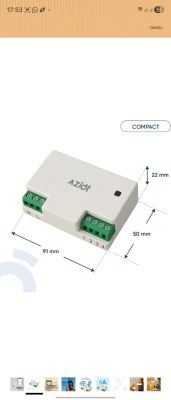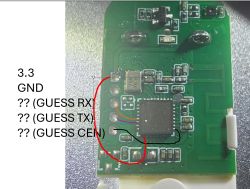Hello,
patient - Arduino IDE, esp8266, SD card, SD.h library, operations on (text) file
Can someone explain this behaviour of the library to me?
1. opening a file in WRITE mode adds a line to the file, not WRITE
2. same as when opening { FILE_WRITE | O_APPEND }
3. after opening a WRITE file, performing the operation and closing the file - dataFile.close();
attempt to reopen ends with an error
4. after opening the WRITE file, both data can be written and read
Syntax - File dataFile = SD.open(file1, FILE_WRITE);
every "normal" library (e.g. in Delphi)
distinguishes between WRITE, READ and APPEND file opening modes
Am I making a mental error, or does this library just work like that?
patient - Arduino IDE, esp8266, SD card, SD.h library, operations on (text) file
Can someone explain this behaviour of the library to me?
1. opening a file in WRITE mode adds a line to the file, not WRITE
2. same as when opening { FILE_WRITE | O_APPEND }
3. after opening a WRITE file, performing the operation and closing the file - dataFile.close();
attempt to reopen ends with an error
4. after opening the WRITE file, both data can be written and read
Syntax - File dataFile = SD.open(file1, FILE_WRITE);
every "normal" library (e.g. in Delphi)
distinguishes between WRITE, READ and APPEND file opening modes
Am I making a mental error, or does this library just work like that?






